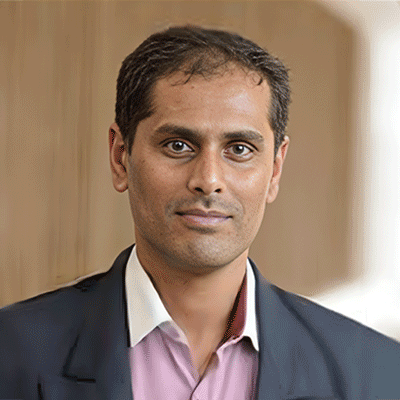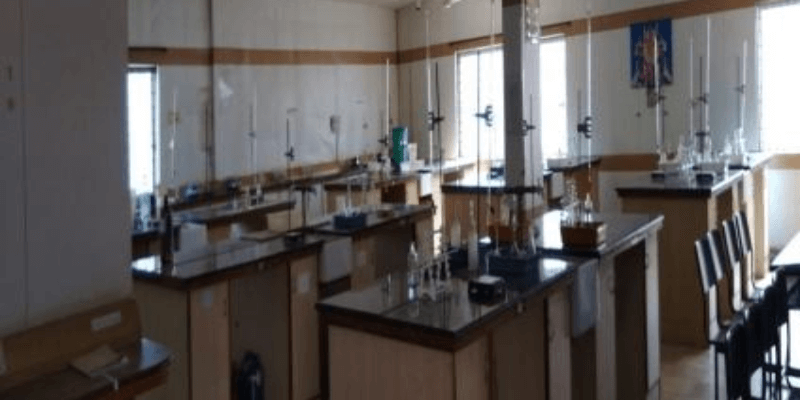Department Profile

Department of Basic Sciences was established in the year 1999 and is supporting department to all engineering programmes comprising of Department of Chemistry
The Department of Chemistry, integral to engineering, is dedicated to shaping aspiring engineers. Established for imparting crucial chemical knowledge, the department blends theoretical concepts with practical applications. Guided by a dedicated faculty, it equips students with a comprehensive understanding of chemistry's role in various engineering disciplines. Through hands-on laboratory work and theoretical instruction, the department ensures students acquire fundamental skills, fostering a holistic and well-rounded education.
It is a recognized research center for pursuing a Ph.D., equipped with well-established facilities to foster both sponsored and academic research, along with consultancy activities. It specializes in various fields of Applied Chemistry, including Polymer Nanocomposites, Medicinal Chemistry, Nanomaterials, Biocatalysts, Coordination Chemistry, Water Treatment, and Smart Materials.
HoD Message
Dear Students,
I extend a warm welcome to the Chemistry Department at East Point College of Engineering & Technology. Our department, recognized as a VTU Research Centre for pursuing a PhD, offers unparalleled opportunities for groundbreaking research and academic excellence.
Integral to engineering, the Department of Chemistry is committed to shaping aspiring engineers. The curriculum is meticulously designed by VTU to blend theoretical concepts with practical applications, ensuring a well-rounded education that equips students with a comprehensive understanding of chemistry's pivotal role in various engineering disciplines.
Guided by a dedicated faculty, we emphasize hands-on laboratory work and theoretical instruction to foster fundamental skills essential for success in the field. Additionally, our department boasts well-established facilities for both sponsored and academic research, catering to a diverse range of specialties including Polymer Nanocomposites, Medicinal Chemistry, Nanomaterials, and more.

Dr. Manjunatha M
East Point College of Engineering and Technology
Chemistry is more than just a subject; it is the backbone of advancements in technology, medicine, and various other fields. By joining our Chemistry Department, you will not only gain a solid foundation in chemical theory but also develop essential analytical and problem-solving skills highly valued in today's competitive job market.
I invite you to join us at East Point College of Engineering & Technology and become part of our vibrant community of aspiring engineers.
Laboratories

Applied Chemistry Lab
Applied Chemistry Lab :- Incorporates the experiments which involves the volumetric estimation of chemicals and determination of various properties of fuel, water sample and lubricants like calorific value, hardness , viscosity and surface tension. To enable the learners to get hands-on experience on the principles discussed in theory sessions and to understand the applications of these concepts in engineering. Practical awareness is inculcated and students are trained both quantitatively and qualitatively during the lab sessions so that their understanding and problem solving abilities can be enhanced. To provide students with a practical approach towards the various techniques used in engineering application.
Program Outcomes
- Engineering knowledge :- Apply the knowledge of mathematics, science, engineering fundamentals, and an engineering specialization to the solution of complex engineering problems.
- Problem analysis :- Identify, formulate, review research literature, and analyse complex engineering problems reaching substantiated conclusions using first principles of mathematics, natural sciences, and engineering sciences.
- Design/development of solutions :- Design solutions for complex engineering problems and design system components or processes that meet the specified needs with appropriate consideration for the public health and safety, and the cultural, societal, and environmental considerations.
- Conduct investigations of complex problems :- Use research-based knowledge and research methods including design of experiments, analysis and interpretation of data, and synthesis of the information to provide valid conclusions.
- Modern tool usage :- Create, select, and apply appropriate techniques, resources, and modern engineering and IT tools including prediction and modelling to complex engineering activities with an understanding of the limitations.
- The engineer and society :- Apply reasoning informed by the contextual knowledge to assess societal, health, safety, legal and cultural issues and the consequent responsibilities relevant to the professional engineering practice.
- Environment and sustainability :- Understand the impact of the professional engineering solutions in societal and environmental contexts, and demonstrate the knowledge of, and need for sustainable development.
- Ethics :- Apply ethical principles and commit to professional ethics and responsibilities and norms of the engineering practice.
- Individual and team work :- Function effectively as an individual, and as a member or leader in diverse teams, and in multidisciplinary settings.
- Communication :- Communicate effectively on complex engineering activities with the engineering community and with society at large, such as, being able to comprehend and write effective reports and design documentation, make effective presentations, and give and receive clear instructions.
- Project management and finance :- Demonstrate knowledge and understanding of the Engineering and management principles and apply these to one’s own work, as a member and leader in a team, to manage projects and in multidisciplinary environments.
- Life -long learning :- Recognize the need for and have the preparation and ability to engage in independent and life -long learning in the broadest context of technological change.

